X
wikiHow is a “wiki,” similar to Wikipedia, which means that many of our articles are co-written by multiple authors. To create this article, volunteer authors worked to edit and improve it over time.
This article has been viewed 31,503 times.
Learn more...
Sometimes friendships drift apart, and sometimes people end friendships thinking it is for the best. You may move on, or you may regret that the friendship ended, and want to be friends again. Here is how to reach out to an old friend, and how to react if they don't respond.
Steps
Method 1
Method 1 of 2:
Reaching Out
-
1Reach out via letter, email, or text. While heart-to-heart conversations can work, which one you choose depends on what style you prefer, how long you want your message to be, and what contact information you have.
- Consider writing a draft of your message, and sleeping on it, before sending it.
-
2Apologize for your part in what went wrong, if anything did. Be honest, and admit your own fault, whatever it was. This shows goodwill, and helps them recognize that you're willing to look back on your own mistakes.
- "I'm sorry I wasn't supportive enough. You needed me and I let you down."
- "I apologize for what I said. I wasn't thinking, and I said terrible things that I didn't mean at all. I should never have let my temper get the best of me, and I know I hurt you."
Advertisement -
3Consider giving an explanation, without making an excuse. You may choose to help your friend understand why you did what you did. However, that doesn't mean making excuses for your wrongdoing. If you did something wrong, you can give an explanation while still acknowledging that it was the wrong thing to do.
- "I suppose we just kind of drifted apart, which happens sometimes and wasn't really anyone's fault."
- "I was overwhelmed because of my own problems, and this clouded my judgment."
- "I was under the mistaken impression that you'd hurt me on purpose. It wasn't until later that I realized I was wrong."
- "I was so angry I couldn't think straight. I needed time to cool down before I could think clearly again. I know that must have been hard for you."
-
4Validate their feelings. If you behaved badly, then your friend may be upset with you. Or, if you just drifted apart, your friend may have little interest anymore. You can show your goodwill and understanding by giving them space to feel how they feel.
- "I know that you may have moved on to other interests, and we may not have much in common anymore."
- "I get why you're angry, and you have reason to be."
- "I know you're sad, and I'm sorry that I upset you."
- "You have every right to be mad at me."
-
5Skip any angry or accusatory language. You may feel frustrated or hurt that your friend hasn't reached out to you. But this is not a good time to pick or rehash fights. You're trying to let your friend know that your friendship matters more to you than any upset feelings.
- It's possible that your friend has dropped off socially due to a crisis, such as a health scare or a death in the family. The last thing you want is to end up being a jerk about it.
- Lashing out at your friend is likely to send the message that the two of you might be better off apart.
-
6Explain that you value your friendship with the person. Why are you trying to rekindle the friendship? Why do you care? Showing how much you care about this person may help them understand your goodwill, and that you want to make this work.
- "We had a lot of good times together, and even though we're both different people now, I want to see if we can be close again."
- "You're so funny and charming, and when we hang out, you always brighten my day. I really miss eating lunch with you and chatting about our lives."
- "I miss your funny stories and your insights that made me see the world differently. We had so much fun going to the mall, talking about our favorite shows, and just hanging out together."
-
7Tell them that it's their choice where things go from here. They may want to be your friend again, or they may move on. They get to choose whether they want to spend time with you anymore, so let them know that you're here to listen when they make that decision.
- "I really value your friendship. I know I may have lost it as a result of my actions. If you'd like to be my friend again, please let me know. If you think we should go our separate ways, tell me and I'll respect your decision."
Advertisement
Method 2
Method 2 of 2:
Looking for a Response
-
1Expect to wait a while. It may take a few days, or even a week or two, for your old friend to mull over what you've said. If they are especially hurt, they may not even open your message.
- Waiting can be hard. Recognize that your friend may be working through a lot, and find other relationships to spend time on as you wait.
-
2Check in once, in person if possible, if you don't get a response after several days or a week. Briefly ask your old friend "I sent you an important email/text/letter (with an apology). Did you read it?"
- If they've read it and made a decision, they may let you know then.
- If they haven't read it, then they may go back and read it, and then respond.
-
3Avoid pestering your old friend. If you bother them by consistently checking on them when they don't have a response (or trying to get them to change their mind if they said no), you'll annoy them and make them not want to be your friend anymore. Take your time and don't drive them away.
- Asking once or twice is plenty. They know how you feel, and if they want to be friends again, they'll come to you.
-
4Recognize that, after a while, no response is a decision too. It hurts, but sometimes people don't want to be your friend anymore. Maybe your old friend can't forgive you, maybe they have moved on, or maybe they just aren't interested.
Advertisement
Community Q&A
-
QuestionI have had a penfriend for over 25 years but only I realized that it has been one-sided and he never make efforts. I finally confronted him in email (nicely) and he hasn't responded in a month. What do I do?
 Community AnswerIf you want to talk to him again, reach out to him. If not, then you should look for a new penfriend as it sounds as though this person may not be the best one for you.
Community AnswerIf you want to talk to him again, reach out to him. If not, then you should look for a new penfriend as it sounds as though this person may not be the best one for you.
Advertisement
Warnings
- Pestering your old friend will only upset them and push them away. If they say no to you, or don't respond positively, assume they want to be alone. In very more cases, repeatedly contacting someone who wants to be alone could even qualify as harassment.⧼thumbs_response⧽
Advertisement
About This Article
Advertisement
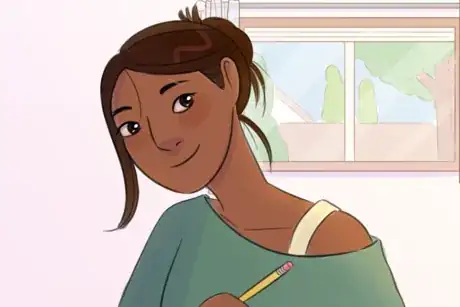

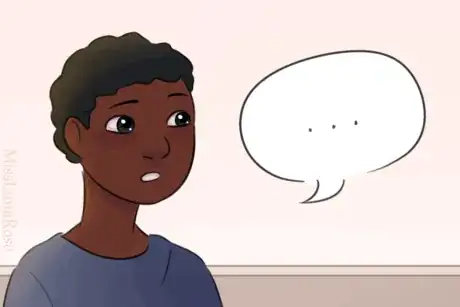
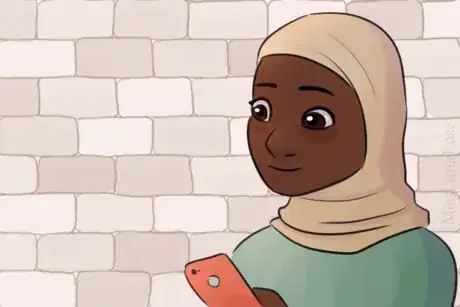

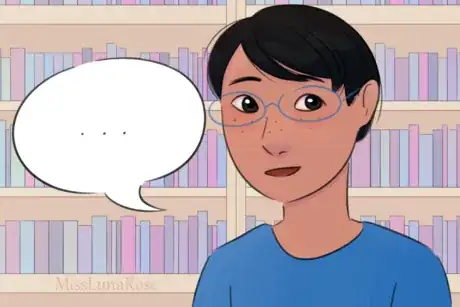
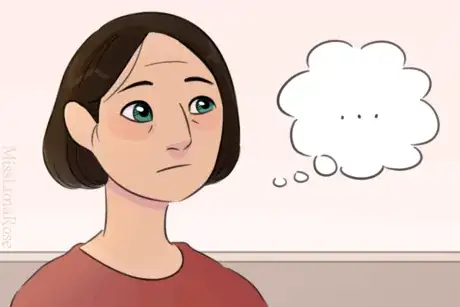
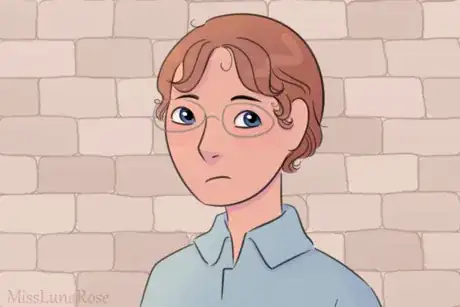
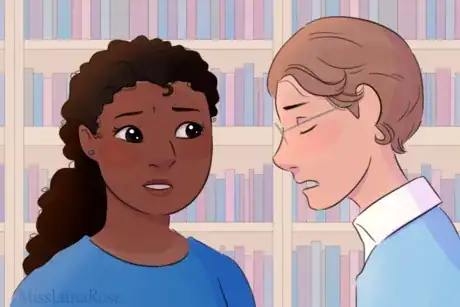
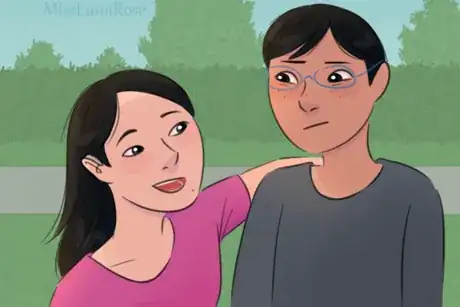
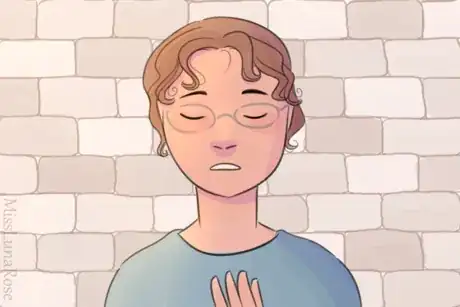
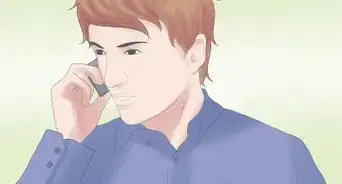



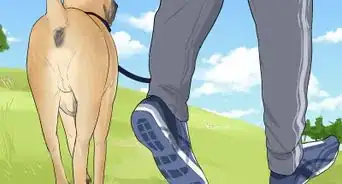
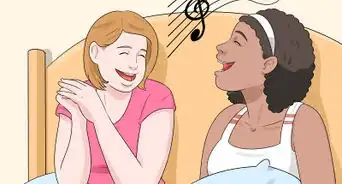

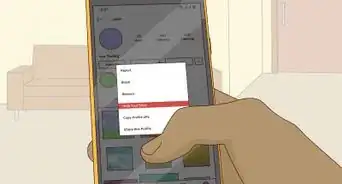
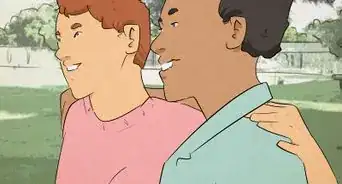
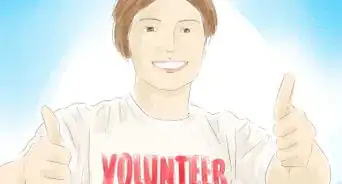

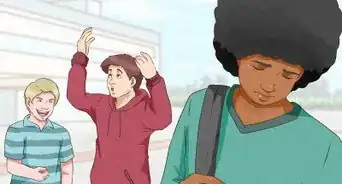

-Step-11-Version-2.webp)













































